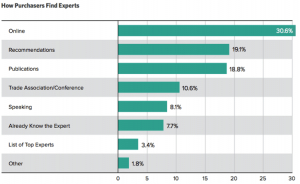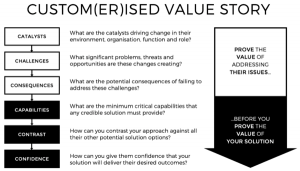
Business success can be attributed to a wide range of factors, especially since each business defines ‘success’ differently. For example, although nonprofits need revenue to function, they usually define success in terms of making progress with their cause.
Regardless of how you define success, your financials matter. Even when profitability isn’t your primary goal, your finances are directly correlated to your level of success. For instance, nonprofits can only contribute to their cause as far as their revenue will take them. When they run out of funding, they usually pause their work.
Even when you have non-monetary goals, you need to keep one eye on your finances at all times. When you know where your business stands financially, you can tailor your strategies to stay on course for reaching your goals.
To know where you stand financially, you need to be running daily, weekly, and monthly financial reports. However, you don’t necessarily need an in-house accountant to run those reports.
For example, datapine makes it easy to automate your financial reporting using dynamic tools that produce user-friendly detailed metrics. The easier your financial reporting tools are, the more often you’ll use them.
Your finances directly support your success
Money fuels your marketing efforts and runs your entire operation. You need to pay your workers, landlords, utility companies, shareholders, and more. If you stopped paying your bills, your business would eventually cease to function.
With that said, financial reporting is the only way to gain insight into where all of your money is going. Without financial reporting, you won’t know if you’re in the red now, or if you’ll be in the red next month. Not knowing where you stand makes it hard to make accurate business decisions.
If you’re just starting to realize the benefits of automated financial reporting, here are nine ways to get started.
1. Use reputable, automated software
There’s no way you’ll be able to manually crunch your financials to generate meaningful reports. Even if you spent every minute of every day crunching your numbers, your results would pale in comparison to automated software. So if you’ve been running manual reports or using Excel, it’s time to switch to automated reporting software.
Automated software can do one thing humans can’t: create a visual for your data. Sure, you can create hand-drawn graphs or enter the information in Excel, but that’s unnecessary and tedious.
Automated software crunches numbers almost instantly, providing you with up-to-date figures in an easy-to-digest business intelligence dashboard. The best part is the option to share your data with others by producing custom reports on the fly.
Advanced financial reporting tools provide predictive analysis, which helps you make forecasts regarding your business.
2. Be ready to account for SEC changes
Financial reports are only as accurate as the data you provide. When SEC regulations change, so do your finances. If you’re running reports based on old SEC regulations, your reports may not be accurate.
For example, the Financial Accounting Standards Board (FASB) has recently issued new standards that affect revenue recognition. In addition, there are new standards for some companies regarding credit losses and COVID-19 deferrals.
According to Forbes, companies will be required to put every lease on their balance sheet. Also, any company with a trade receivable or investment portfolio will be required to analyze and report any impact of credit loss.
3. Be realistic
Has the COVID-19 pandemic affected your business? Is there a chance your business won’t survive in the current unpredictable economy? Do you have enough cash flow to make it for another year?
It’s essential to be realistic about your ability to continue running your business. If your financial reports show some problems, the time to fix those problems is right now.
If you can’t fix the problems, you may want to consider calling in a financial expert to advise you on ways to save money, possibly by downsizing.
You might actually benefit from downsizing. For example, if you got rid of your physical office, you’d drop thousands of dollars in rent, internet, and electricity bills. Having employees working remotely could really save you a lot of money, time, and resources.
4. It’s worth the time to move to a new system
Nobody likes moving from one system to another. Even switching email providers is frustrating. However, switching to an automated financial reporting system is worth every second it takes to get the job done.
If you’re moving over from Excel spreadsheets, you’ll spend a significant amount of time sifting through old files to get past data. In addition, you’ll want to port over your past data because of the predictive algorithms used to create future projections.
5. Be ready to learn
When using an automated system, you’re going to learn more about financial reporting than you probably knew before. Of course, your financial statement will still tell you how your business is doing, but you’ll gain in-depth insight into the details.
You’ll also take a deep dive into financial jargon you may not have known. Jargon isn’t bad – it’s just a language specific to a particular industry or niche.
You can head over to Investopedia’s financial jargon dictionary anytime to start familiarizing yourself with terms. Granted, you won’t encounter all of these terms in your automated reporting system, but you might see some unfamiliar terms.
6. Be ready to account for non-financial data to investors
The one thing your financial reporting system won’t do is account for factors external to your business, like the economy, the state of your industry, competition, market forces, and new technologies.
Any financial statements you prepare for investors won’t reflect these factors, but investors will be aware of them. This could change your investment conversations.
7. Be careful with Bitcoin
Bitcoin can make your financial reports a mess. That doesn’t mean you should avoid it entirely, but you need to tread carefully. For instance, Bitcoin is classified as an asset, and since the value fluctuates, you’ll owe capital gains taxes on any Bitcoin you hold.
If you accept Bitcoin as payment from your customers or clients, you need an accountant to help with your finances. There are strict tax regulations regarding holding and using Bitcoin, and after you read through the tax regulations, you might stop accepting cryptocurrency completely.
Another issue to consider is paying employees with Bitcoin or other cryptocurrencies. Are you thinking about paying your employees with Bitcoin? You’ll want to skip that idea. Even when employees request to be paid in cryptocurrency, it’s not legal.
In the United States, the Fair Labor Standards Act (FLSA) requires employers to pay workers “in cash or negotiable instrument payable at par.” Unfortunately, cryptocurrency doesn’t qualify under this requirement.
In some states, employees must be paid specifically in U.S. currency. According to JD Supra, these states include California, Washington, Georgia, Maryland, Delaware, Pennsylvania, Michigan, New Jersey, Texas, and Illinois.
Texas might be the only state where Bitcoin wages would be legal. This is because state law allows employees to agree, in writing, to be paid in “another form.” However, the FLSA would still apply, making Bitcoin illegal as wages.
This is actually to everyone’s benefit. If you paid your employees in Bitcoin, and the value dropped by 30% before your employees could cash out, they might have grounds for a lawsuit. It’s hard to say for sure because the law isn’t clear.
8. Verify data accuracy
When you look at your financial reports, you’ll form conclusions based on the numbers and percentages you see. Is the output correct? Make sure you’re feeding the system accurate data.
Accurate financial reports depend on accurate data. So if you’re going to make critical business decisions based on what comes out in your reports, it’s imperative to ensure the raw data is accurate.
There are plenty of factors that can skew your data, including manual errors and also system errors. So make sure you only use a reputable automated reporting system that has been proven reliable and accurate.
9. Be ready to make changes when necessary
When you see numbers in your reports that you don’t like, be ready and willing to make changes. For example, if performance is down, you may need to take a second look at your KPIs to ensure you’ve assigned them to the right people.
It’s not unusual for managers to assign the wrong KPIs to employees who have little to no control over the end result in that area.
If anything in your reports doesn’t make sense, talk to your financial department to get to the bottom of the issue.
Financial reporting is more important than the money you count
You could have five billion dollars, but without financial reporting, you could end up wasting every penny, cutting off your ability to achieve any level of success.
You don’t just need money – you need to know how much money you have, where it’s coming from, and where it’s being paid out for expenses.
Whether you define success in terms of revenue, making a difference, or becoming a household name, financial reporting is your golden ticket to success.
Business & Finance Articles on Business 2 Community
(53)
Report Post







